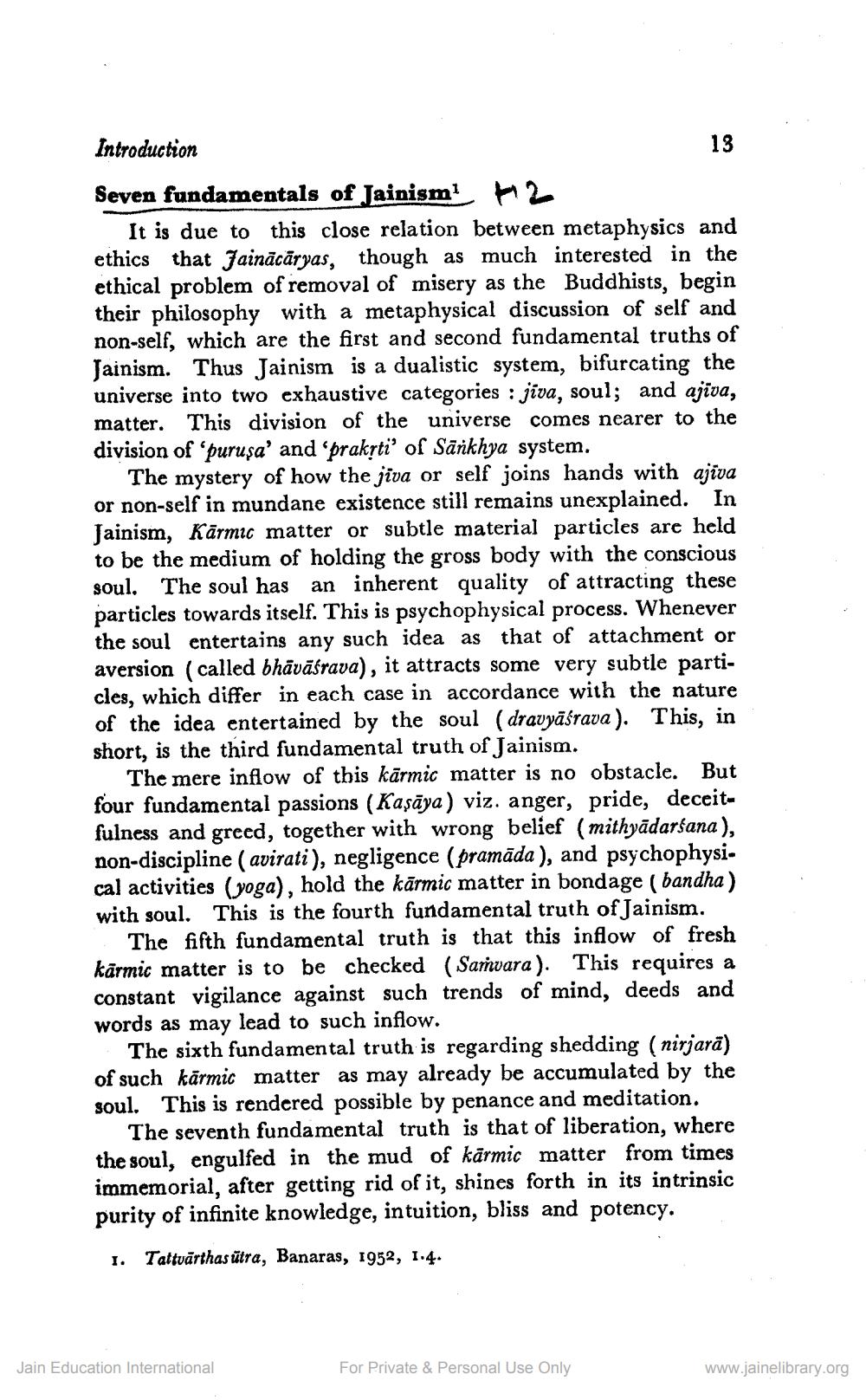________________
Introduction
13 Seven fundamentals of Jainism 2
It is due to this close relation between metaphysics and ethics that Jainācāryas, though as much interested in the ethical problem of removal of misery as the Buddhists, begin their philosophy with a metaphysical discussion of self and non-self, which are the first and second fundamental truths of Jainism. Thus Jainism is a dualistic system, bifurcating the universe into two exhaustive categories : jiva, soul; and ajiva, matter. This division of the universe comes nearer to the division of puruṣa' and 'prakrti' of Sāňkhya system.
The mystery of how the jiva or self joins hands with ajiva or non-self in mundane existence still remains unexplained. In Jainism, Kārmic matter or subtle material particles are held to be the medium of holding the gross body with the conscious soul. The soul has an inherent quality of attracting these particles towards itself. This is psychophysical process. Whenever the soul entertains any such idea as that of attachment or aversion (called bhāvāšrava), it attracts some very subtle particles, which differ in each case in accordance with the nature of the idea entertained by the soul (dravyāśrava). This, in short, is the third fundamental truth of Jainism.
The mere inflow of this kārmic matter is no obstacle. But four fundamental passions (Kaşāya) viz. anger, pride, deceitfulness and greed, together with wrong belief (mithyādarśana), non-discipline ( avirati), negligence (pramāda), and psychophysical activities (yoga), hold the kārmic matter in bondage ( bandha) with soul. This is the fourth fundamental truth of Jainism.
The fifth fundamental truth is that this inflow of fresh kārmic matter is to be checked (Samvara). This requires a constant vigilance against such trends of mind, deeds and words as may lead to such inflow.
The sixth fundamental truth is regarding shedding (nirjarā) of such kārmic matter as may already be accumulated by the soul. This is rendered possible by penance and meditation.
The seventh fundamental truth is that of liberation, where the soul, engulfed in the mud of kārmic matter from times immemorial, after getting rid of it, shines forth in its intrinsic purity of infinite knowledge, intuition, bliss and potency.
1. Tattvārthasūtra, Banaras, 1952, 1.4.
Jain Education International
For Private & Personal Use Only
www.jainelibrary.org




